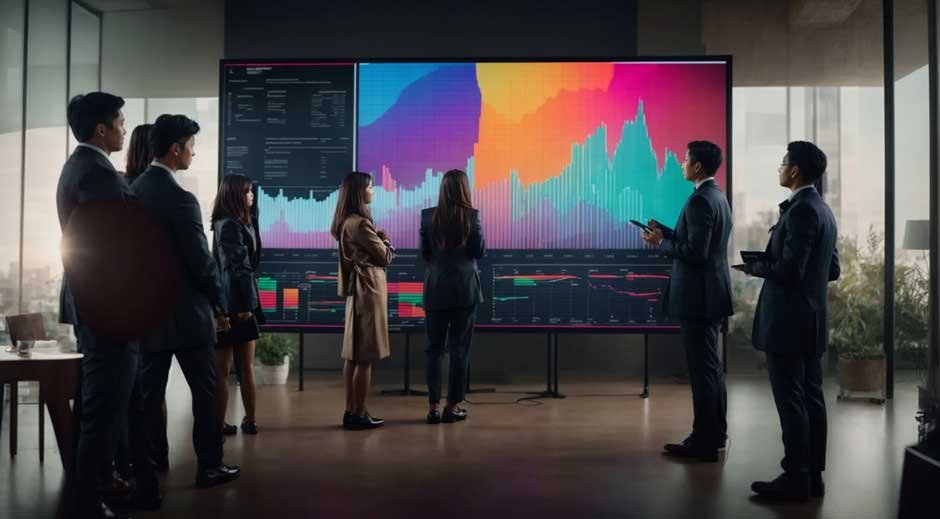In the rapidly evolving world of real estate, the line between online and offline marketing is becoming increasingly blurred. Successful real estate professionals understand the importance of a holistic approach that leverages the strengths of both online and offline strategies to create a comprehensive marketing plan. This article explores the seamless integration of digital and traditional marketing methods in the real estate industry, offering insights on how to maximize their combined potential to reach, engage, and convert potential clients.
Maximizing Online Visibility through Digital Platforms
In the digital age, an online presence is indispensable for real estate marketing. Websites, social media, and email campaigns form the backbone of digital marketing efforts, providing platforms to showcase properties, share market insights, and connect with potential clients. A well-designed, user-friendly website can serve as the central hub for your online marketing efforts, offering detailed property listings, client testimonials, and valuable resources for buyers and sellers.
Social media platforms extend your reach even further, allowing you to engage with a broader audience through targeted ads, interactive content, and real-time communication. Platforms like Facebook, Instagram, and LinkedIn are invaluable for building brand awareness and fostering relationships with potential clients. Moreover, email marketing campaigns can keep your audience informed and engaged, offering personalized content tailored to their interests and needs.
Enhancing Engagement with High-Quality Content
Content is the cornerstone of effective online marketing, providing value to your audience while establishing your expertise and authority in the real estate market. High-quality, informative content can attract potential clients to your digital platforms, encouraging them to engage with your brand. This content can take various forms, including blog posts that offer market insights, how-to guides for buyers and sellers, and video tours of properties.
Consistency and relevance are key to a successful content strategy. By regularly updating your platforms with fresh, relevant content, you can keep your audience engaged and encourage repeat visits. Additionally, leveraging SEO techniques can enhance the visibility of your content, making it easier for potential clients to find you online.
Leveraging Traditional Marketing Tactics
Despite the surge in digital marketing, traditional marketing tactics continue to play a crucial role in real estate. Direct mail campaigns, for example, can provide a tangible touchpoint, delivering personalized messages directly to potential clients’ homes. Billboards, bench ads, and signage offer high-visibility branding opportunities, especially in local markets where physical presence counts.
Networking and community involvement are also integral to offline marketing. Attending local events, sponsoring community activities, and joining real estate associations can help you build a strong local network and generate word-of-mouth referrals. These traditional methods complement your online efforts, creating a well-rounded marketing strategy that reaches clients across multiple channels.
Integrating Online and Offline Strategies for a Cohesive Campaign
The most successful real estate marketing campaigns are those that seamlessly integrate online and offline strategies. For instance, a direct mail campaign can direct recipients to your website or social media profiles, bridging the gap between physical and digital interactions. Similarly, promoting offline events on your online platforms can enhance attendance and engagement, offering a unified brand experience.
Integration also involves consistency in messaging and branding across all channels. Ensuring that your online presence reflects the same values, aesthetics, and professionalism as your offline materials creates a cohesive brand image that resonates with clients and builds trust.
Utilizing Innovative Techniques for Competitive Advantage
To stand out in the competitive real estate market, incorporating innovative techniques into your marketing strategy can provide a significant advantage. For example, skip tracing in real estate can be a powerful tool for identifying potential leads by locating property owners who may be difficult to reach through traditional methods. This technique can be particularly useful in targeted direct mail campaigns, ensuring that your messages reach a highly relevant audience.
Virtual reality (VR) tours and augmented reality (AR) experiences are other innovative tools that can enhance your online marketing efforts. Offering virtual tours of properties on your website or social media platforms can attract tech-savvy clients and provide a unique viewing experience that sets your listings apart.
Personalizing the Client Experience
In the realm of real estate marketing, personalization can significantly enhance the effectiveness of both online and offline strategies. Tailoring communications and offerings to meet the specific needs and preferences of individual clients can foster stronger connections and increase engagement. Online, this might involve using data analytics to segment your audience and deliver customized email content or property recommendations. Offline, personal touches like handwritten notes or personalized gifts can leave a lasting impression, making clients feel valued and understood.
Personalization extends beyond direct communication. Customizing the buying or selling experience based on client feedback and preferences can make the entire process more enjoyable and less stressful for them. This approach not only nurtures client relationships but also encourages positive word-of-mouth, generating additional leads.
Optimizing for Local SEO
For real estate professionals, local visibility is crucial. Optimizing your online presence for local search engine optimization (SEO) ensures that your business appears prominently when potential clients search for real estate services in your area. This includes claiming and optimizing your Google My Business listing, incorporating local keywords into your website content, and generating local backlinks. Local SEO also involves managing online reviews, an essential factor that influences potential clients’ perceptions of your business.
Harnessing the Power of Video Marketing
Video marketing is an incredibly effective tool for both online and offline real estate marketing. Online, videos can bring properties to life, offering virtual tours that allow potential buyers to explore homes from the comfort of their own. Videos can also be used to share market insights, client testimonials, and behind-the-scenes looks at your real estate business, adding a personal touch to your digital presence.
Offline, videos can be integrated into presentations at client meetings or community events, providing a dynamic way to convey information and engage your audience. Additionally, showcasing video content in your office or at property showings can enhance the client experience and provide valuable information in an easily digestible format.
Creating Community Connections
Building strong connections within your local community can significantly boost your real estate marketing efforts. Offline, this might involve participating in or sponsoring local events, volunteering for community projects, or hosting workshops and seminars on real estate topics. These activities not only increase your visibility but also establish you as a committed and caring member of the community.
Online, you can extend these community connections by sharing local news, promoting community events, and highlighting local businesses on your social media platforms and website. Engaging with your community in both online and offline settings demonstrates your investment in the area’s well-being, endearing you to potential clients and generating leads through community involvement.
Conclusion
In the dynamic landscape of real estate marketing, integrating online and offline strategies is key to achieving a comprehensive and effective marketing plan. By leveraging the wide reach and engagement potential of digital platforms, while maintaining the personal touch and local presence of traditional methods, real estate professionals can create a cohesive and impactful marketing campaign. Consistency, innovation, and a deep understanding of your audience’s preferences are crucial to bridging the gap between online and offline marketing, ensuring that your message resonates with potential clients across all channels. In the end, the successful integration of these strategies can lead to increased visibility, stronger relationships, and ultimately, more successful transactions in the real estate market.
The post Bridging the Gap: Integrating Online and Offline Strategies in Real Estate Marketing appeared first on Heal How.
Flash News
Empowering you to live a fit and healthy life







